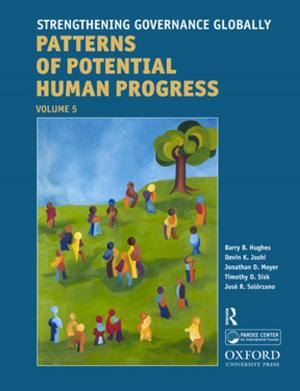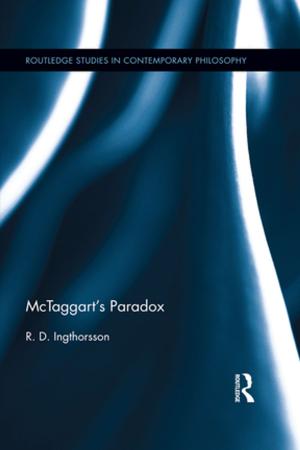Environmental Security
An Introduction
Nonfiction, Social & Cultural Studies, Political Science, International, International Security, Science & Nature, Nature, Environment, Environmental Conservation & Protection, International Relations| Author: | Peter Hough | ISBN: | 9781134696109 |
| Publisher: | Taylor and Francis | Publication: | February 3, 2014 |
| Imprint: | Routledge | Language: | English |
| Author: | Peter Hough |
| ISBN: | 9781134696109 |
| Publisher: | Taylor and Francis |
| Publication: | February 3, 2014 |
| Imprint: | Routledge |
| Language: | English |
This student-friendly textbook offers a survey of the competing conceptions and applications of the increasingly prominent notion of environmental security.
The book is divided into three sections. In the first, the key theoretical and practical arguments for and against bringing together environmental and security issues are set out. The book then goes on to present how and why environmental issues have come to be framed in some quarters as ‘national security‘ concerns in the context of the effects of overpopulation, resource depletion, climate change and the role of the military as both a cause and a solution to problems of pollution and natural disasters. Finally, the third section explores the case for treating the key issues of environmental change as matters of human security. Overall, the book will provide a clear, systematic and thorough overview of all dimensions of an area of great academic and ‘real-world’ political interest but one that has rarely been set out in an accessible textbook format hitherto.
This book will be essential reading for students of environmental studies, critical and human security, global governance, development studies, and IR in general.
This student-friendly textbook offers a survey of the competing conceptions and applications of the increasingly prominent notion of environmental security.
The book is divided into three sections. In the first, the key theoretical and practical arguments for and against bringing together environmental and security issues are set out. The book then goes on to present how and why environmental issues have come to be framed in some quarters as ‘national security‘ concerns in the context of the effects of overpopulation, resource depletion, climate change and the role of the military as both a cause and a solution to problems of pollution and natural disasters. Finally, the third section explores the case for treating the key issues of environmental change as matters of human security. Overall, the book will provide a clear, systematic and thorough overview of all dimensions of an area of great academic and ‘real-world’ political interest but one that has rarely been set out in an accessible textbook format hitherto.
This book will be essential reading for students of environmental studies, critical and human security, global governance, development studies, and IR in general.















